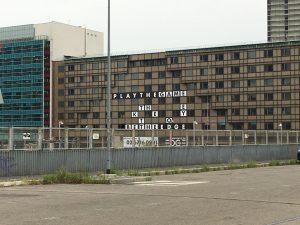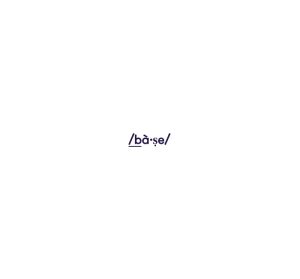English below
17.Juni 2021 – “Collaborative Atlases for Heritage and the Commons” – Multiplikator:innen Event zum Trainingsprogramm für partizipative Methoden in Berlin-Schöneberg
Sie, als Akteur:innen in der Stadtentwicklung, Stadtforschung und Stadtteilarbeit, möchten wir herzlich einladen zu unserem Multiplikator:innen Event für die Ergebnisse aus unserem Trainingsprogramm für partizipative Methoden zur Nachbarschaftsentwicklung in Berlin-Schöneberg. Es werden Methoden zur Stadtteilerkundung und kreative Wege zur Erzählung von lokalen Geschichten vorgestellt und es wird einen Austausch geben über Ideen für Aktionspläne in Berlin-Schöneberg.
Unser Trainingsprogramm für partizipative Methoden “Collaborative Atlases for Heritage and the Commons” in Berlin-Schöneberg war Teil des Erasmus+ Projekts “openCCCP”. Als Ergebnis aus einer Stadterkundung in Berlin-Schöneberg und einem Workshop zum gestalterischen Erzählen sind u.a. Geschichten über Solidarität, Menschen und Bauwerke entstanden, die das lokale Erbe Schönebers präsentieren. Außerdem wurden Aktionspläne entwickelt für mögliche weitere Aktionen zur Entwicklung und Entdeckung der Nachbarschaft, die wir Ihnen gerne vorstellen und mit Ihnen diskutieren möchten.
Wenn Sie interessiert sind, Erfahrungen über kreative und partizipative Methoden auszutauschen und gemeinsam überlegen wollen, wie lokales Erbe genutzt werden kann für die Stadtteilentwicklung, melden Sie sich gerne kostenlos hier über Eventbrite an:
Collaborative Atlas Lab – Open Round Registrierung
——–
WAS?
Wir stellen unsere Ergebnisse und Methoden vor:
- Die Urban Reconnaissance Methode zur Stadtteilerkundung
- Das NarrAbility Tool als Archiv für gesammelte Stadtgeschichten
- Ideen für Aktionspläne zum Thema “Heritage and the Commons” in Schöneberg
Im Anschluss laden wir ein zu einer offenen Diskussion zur möglichen Umsetzung von Aktionen in Schöneberg.
WANN?
17.Juni 2021 – 16.30-18:00 Uhr – online
FÜR WEN?
Alle, die interessiert sind am Austausch über Methoden zur Stadtteilerkundung, Storytelling, dem Stadtteil Berlin-Schöneberg, dem Thema “Heritage and Commons” oder an Projekten über kreative Nachbarschaftsentwicklung
HINTERGRUND?
Das OpenCCCP Projekt (From Open Educational Resources to Open Educational Practice for Commons Community and Culture Projects) ist ein Erasmus+ Programm in 5 Partnerstädten (Lissabon, Berlin, Palermo, Iași, Barcelona). Ziel des Projekts ist es, öffentlich zugängliche Quellen zu nutzen, um freies und informelles Lernen zu ermöglichen.
Als Teil des Projekts wurden in den fünf Partnerstädten lokale Trainingsprogramme organisiert um Methoden zu testen, mit denen lokales (kulturelles) Erbe in Stadtteilen für Nachbarschaftsentwicklung genutzt werden kann.
17 June 2021 – “Collaborative Atlases for Heritage and the Commons” – Multiplier event for the training program for participatory methods in Berlin-Schöneberg
We would like to invite you, as practitioners in urban development, urban research and community work, to our sharing event to explore with us the results of our Collaborative Atlases for Heritage and the Commons project, a training program in participatory methods for neighbourhood development which we delivered in Berlin-Schöneberg in 2020.
The event will include the presentation of some of our methodologies and tools for neighbourhood exploration and storytelling alongside discussion about further ideas for community action and research in Berlin.
The event will be held online and tickets can be obtained for free via Eventbrite:
Collaborative Atlas Lab – Open Round Registration
——–
WHAT
We will present our projects findings and methods:
- The ‘Urban Reconnaissance’ method for neighbourhood exploration.
- The NarrAbility Tool as an archive for collected urban histories
- Ideas for action plans on the topic of “Heritage and the Commons” in Schöneberg
- Afterwards, we invite you to an open discussion on possible further actions in Schöneberg.
WHEN
June 17th 2021 – 16:30-18:00 – online.
FOR WHOM
Anyone interested in sharing methods for neighbourhood exploration, storytelling, the community in Berlin-Schöneberg, the topic of “Heritage and Commons” or projects about creative neighbourhood development.
NOTE: This event will be held in German
BACKGROUND
Our “Collaborative Atlases for Heritage and the Commons” training program for participatory methods took place in Berlin-Schöneberg in 2020 and was part of the Erasmus+ project “OpenCCCP”.
The OpenCCCP (Open Educational Resources to Open Educational Practice for Commons Community and Culture Projects) is an Erasmus+ program taking place in 5 partner cities (Lisbon, Berlin, Palermo, Iași, Barcelona). The aim of the project is to use publicly available sources to enable free and informal learning.
As part of the project, local training programs were organized in the five partner cities to test methods to use local (cultural) heritage in neighbourhoods for community development.


